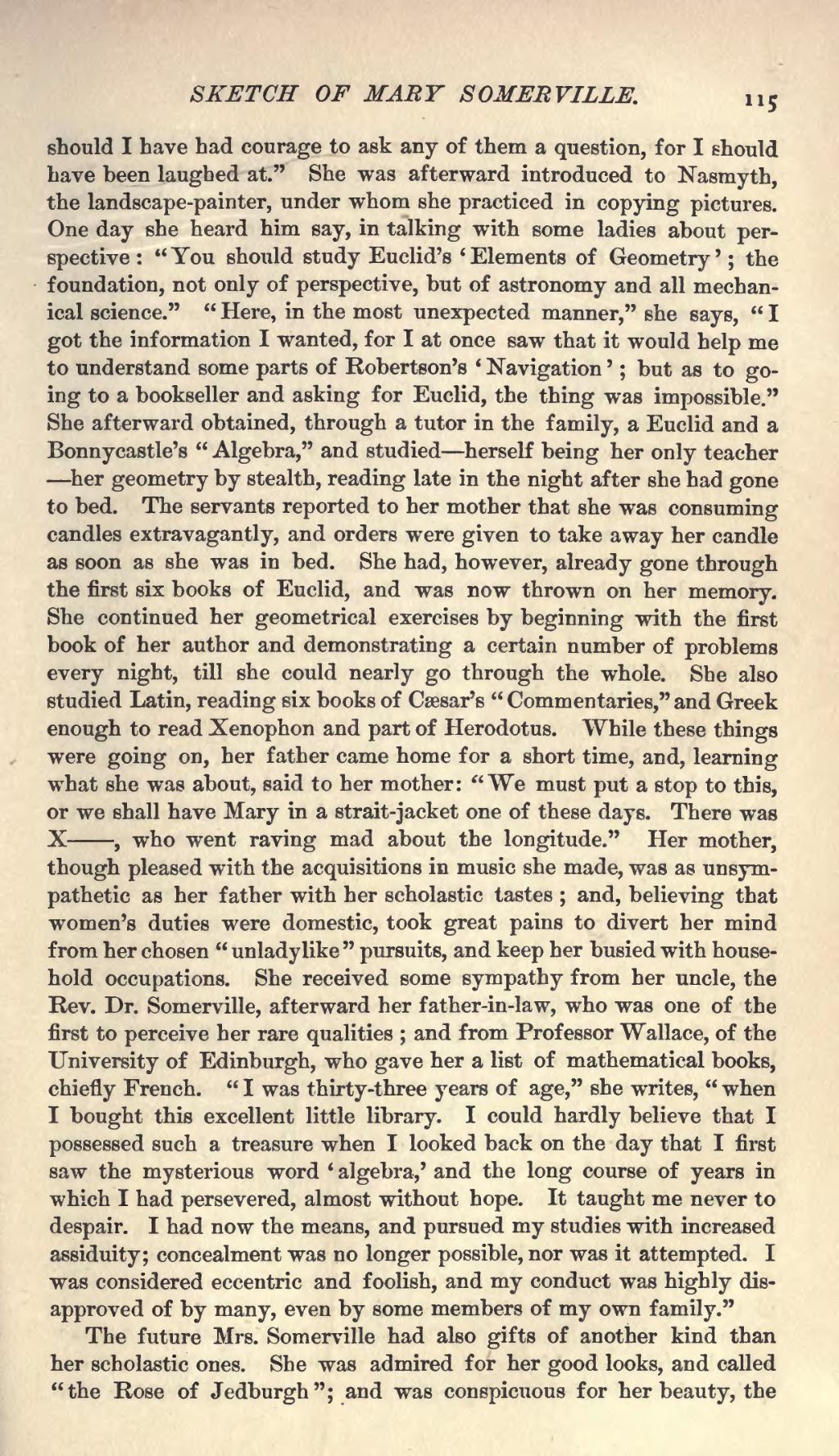should I have had courage to ask any of them a question, for I should have been laughed at." She was afterward introduced to Nasmyth, the landscape-painter, under whom she practiced in copying pictures. One day she heard him say, in talking with some ladies about perspective: "You should study Euclid's 'Elements of Geometry'; the foundation, not only of perspective, but of astronomy and all mechanical science." "Here, in the most unexpected manner," she says, "I got the information I wanted, for I at once saw that it would help me to understand some parts of Robertson's 'Navigation'; but as to going to a bookseller and asking for Euclid, the thing was impossible." She afterward obtained, through a tutor in the family, a Euclid and a Bonnycastle's "Algebra," and studied—herself being her only teacher—her geometry by stealth, reading late in the night after she had gone to bed. The servants reported to her mother that she was consuming candles extravagantly, and orders were given to take away her candle as soon as she was in bed. She had, however, already gone through the first six books of Euclid, and was now thrown on her memory. She continued her geometrical exercises by beginning with the first book of her author and demonstrating a certain number of problems every night, till she could nearly go through the whole. She also studied Latin, reading six books of Caesar's "Commentaries," and Greek enough to read Xenophon and part of Herodotus. While these things were going on, her father came home for a short time, and, learning what she was about, said to her mother: "We must put a stop to this, or we shall have Mary in a strait-jacket one of these days. There was X, who went raving mad about the longitude." Her mother, though pleased with the acquisitions in music she made, was as unsympathetic as her father with her scholastic tastes; and, believing that women's duties were domestic, took great pains to divert her mind from her chosen "unladylike" pursuits, and keep her busied with household occupations. She received some sympathy from her uncle, the Rev. Dr. Somerville, afterward her father-in-law, who was one of the first to perceive her rare qualities; and from Professor Wallace, of the University of Edinburgh, who gave her a list of mathematical books, chiefly French. "I was thirty-three years of age," she writes, "when I bought this excellent little library. I could hardly believe that I possessed such a treasure when I looked back on the day that I first saw the mysterious word 'algebra,' and the long course of years in which I had persevered, almost without hope. It taught me never to despair. I had now the means, and pursued my studies with increased assiduity; concealment was no longer possible, nor was it attempted. I was considered eccentric and foolish, and my conduct was highly disapproved of by many, even by some members of my own family."
The future Mrs. Somerville had also gifts of another kind than her scholastic ones. She was admired for her good looks, and called "the Rose of Jedburgh"; and was conspicuous for her beauty, the
